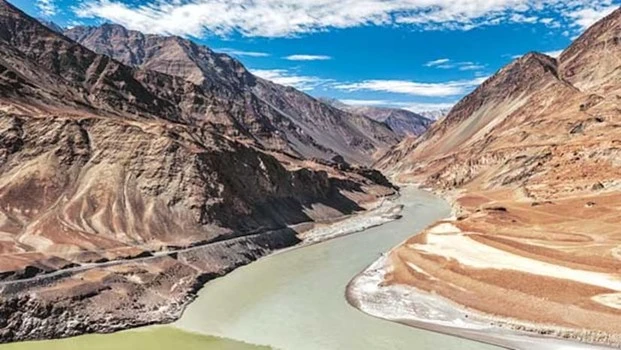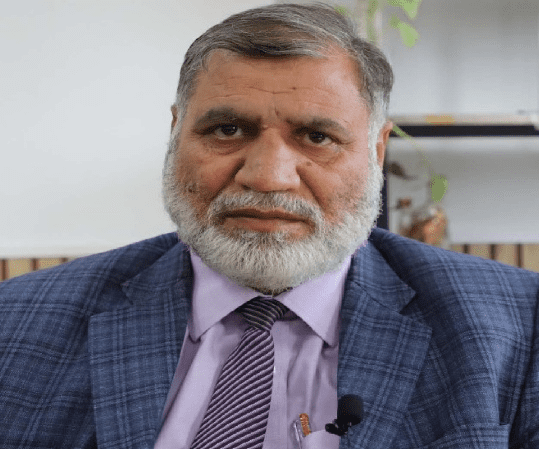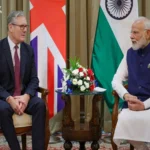Signed in 1960 and mediated by the World Bank, the historic Indus Waters Treaty (IWT) guaranteed India and Pakistan fair share of the Indus Basin waters. Designed to resist political unrest and military conflict, it represented peaceful collaboration for more than six decades. But under successive Indian governments, especially under the Modi government, recent events have progressively endangered this delicate balance. India is deliberately weaponizing water against Pakistan by means of unilateral measures, heated language, and a clear rejection to respect conflict resolution systems. Along with Pakistan’s water security, this assertive hydro political approach compromises the legitimacy of international accords and peace in South Asia.
Rising efforts by India to misinterpret or even suspend the IWT are both illegal and concerning. International law, including the Vienna Convention on the Law of Treaties, allows no side to unilaterally withdraw from a bilateral agreement. India’s threats to “review” or suspend the pact are ethically repugnant in addition to legally empty. Such acts create a hazardous precedent wherein national interest dominates worldwide duties and contravene the values of transboundary water sharing ingrained in the UN Watercourses Convention.
On water, Pakistan has always maintained a red line. Any unilateral restriction of water flow is existential peril for a nation whose economy, agriculture, and lifestyles are intricately linked to the Indus basin. Efforts to control or limit water supply to Pakistan amount to an aggressive act. Water is a humanitarian need not a weapon for extortion. Leveraging it as leverage is a blatant provocation for which Pakistan would respond proportionately diplomatically, legally, and strategically.
The persistent treaty breaches by India, particularly with regard to the building of illegal dams like Baglihar and Kishanganga on the Western Rivers assigned to Pakistan, have seriously affected downstream water supply. In an already water-stressed country, these projects not only lower Pakistan’s agricultural output and food security but also help to worsen environmental damage. India is avoiding and even mocking international procedures whereas Pakistan keeps trying relentlessly to settle these problems via diplomatic and legal channels.
Worse is the language behind these acts. Prime Minister Narendra Modi among other Indian politicians has freely used provocative words like “blood and water cannot flow together.” These show a well ingrained policy of antagonism and coercion, not just campaign rhetoric. This perilous mix of politics with water security exposes a will to destabilize Pakistan both ecologically and economically.
By contrast, Pakistan has maintained moral and legal standards in its behavior. Pakistan has never politicized civilian infrastructure or militarized vital resources, under great strain and provocation either. From the Kulbhushan Jadhav trial to ceasefire breaches, Pakistan has exhibited moderation and observance of legal standards. The same strategy holds for the IWT, which Pakistan has maintained in text and spirit.
The behavior of India compromises not just the operational structure of the IWT but also its fundamental apolitical cooperation philosophy. The pact was meant to be immune from bilateral political disputes; its survival through wars and crises attested to that aim. But India’s increasing propensity to mix hydro politics with more general geopolitical conflicts compromises this fundamental idea, therefore undermining international law and wiping out decades of cooperative development.
Especially for players like the World Bank, the global community cannot afford to be only passive onlookers. India’s rejection of World Bank systems and its denial of treaty-based arbitration erode confidence in multilateralism and jeopardize the direction of world conflict resolution. The fundamental basis of international diplomacy is under danger if strong governments may unilaterally violate widely approved accords without repercussions.
Moreover, India’s fast building of dams under the cover of development hides a darker purpose: long-term strategic control over Pakistan’s water supply. This is about hydro-dominance not about irrigation or electricity by itself. Apart from violating the “no-harm” concept, these acts compromise the life of more than 220 million Pakistanis who rely on the Indus Basin for livelihoods, agriculture, and drinking water. Any disturbance has the danger of causing environmental and humanitarian disaster.
Global accords are not susceptible to the vagaries of national politics. Every international agreement loses credibility when India tries to construe the IWT unilaterally. Should this kind of conduct become accepted, the planet runs the danger of approaching a time when political expediency may cause legal obligations to be dropped.
This inclination fits a larger pattern of regional unilateralism by India. From denying communication over Kashmir to disregarding cease agreements, India’s approach progressively rejects peaceful conflict resolution in favor of pressure. This strategy puts not just Pakistan but also regional peace and security seriously under danger.
Pakistan keeps the pact honorably, transparently, and with a dedication to collaboration despite all provocations. Good fortune has limitations, however. Should India keep up its hydro political aggressiveness, the effects will be extensive and permanent.
Water has to bind rather than separate. Both countries as well as the globe stand to gain from the Indus Waters Treaty being maintained rather than undermined. The whole community has to act right now. Ignoring the deal now can cause water to become a trigger for next war. Silence against the aggressiveness of India is collaboration rather than neutrality.
India is, many would argue, a state sponsor of terror, not a victim of it. On the other hand, Pakistan bears great human and financial expenses and is a frontline state in the worldwide struggle against terrorism. If the world intends to solve the underlying reasons of regional instability, it has to accept this fact.
Under the Modi administration, India’s more antagonistic hydro politics endanger regional security, international law, and humanitarian standards. Water is Pakistan’s red line; any effort to deny it its due would be fiercely resisted. Time to act is right now. Before a paradigm of collaboration turns into the next spark for violence, the world has to step in.








